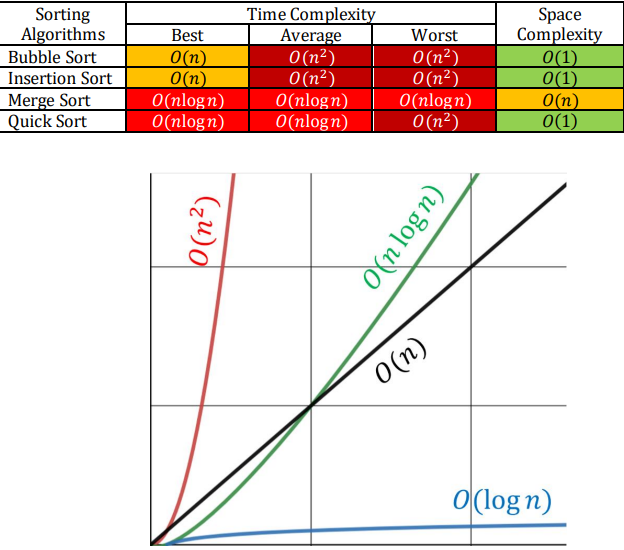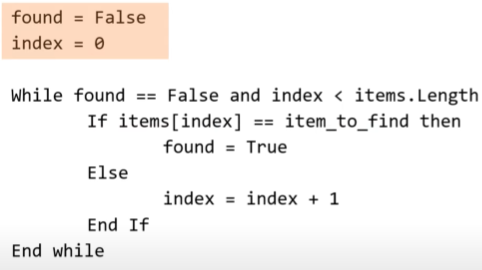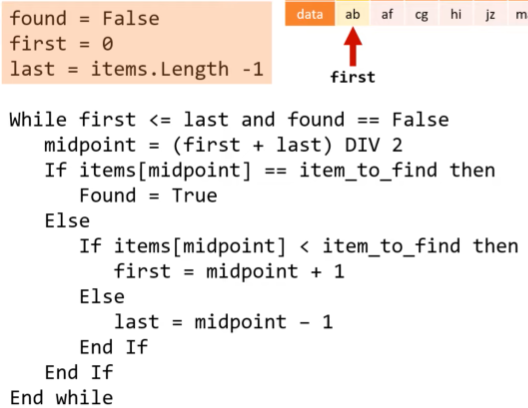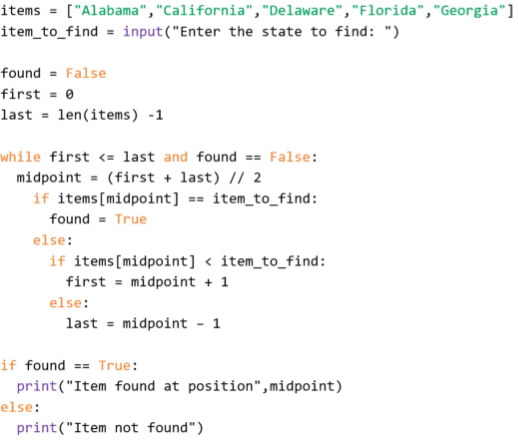2.3.1 analysis, design and comparison algorithms
1/20
There's no tags or description
Looks like no tags are added yet.
Name | Mastery | Learn | Test | Matching | Spaced |
|---|
No study sessions yet.
21 Terms
time complexity
how much time an algorithm requires to solve a particular problem
big o cheat sheet

O(1) time complexity
constant time complexity
time taken is independent from the number of elements inputted
O(n) time complexity
linear time complexity
time taken is directly proportional to the number of elements inputted
O(n²) time complexity
time taken is directly proportional to the square of the elements inputted
quadratic
0(2ⁿ)
exponential
time taken will double with every additional item
0(log n)
logarithmic
each step cuts the problem size in half
0(n log n)
linearithmic
the algorithm does n operations, but each operation takes log n time, so the total is n × log n steps
time complexities in order
fastest
O(1)
O(log n)
O(n)
O(n log n)
O(n2)
O(2n)
O(n!)
space complexity
the amount of storage the algorithm takes
in place sort
elements of the array are sorted directly within the array itself
space complexity remains O(1)
Bubble Sort, Insertion Sort, quick sort
out of place sort
additional arrays are used as part of the sort requiring more memory
O(n)
e.g. the sub-arrays created during merge sort
reduce space complexity
preforms all the changes on the original piece of data
reduce time complexity
reduce the number of embedded loops
reduce the number of items you have to complete the operations on
algorithm
a series of steps that completes a task
linear search
starts at the first item in the list and checks each item one by one
doesn’t require data to be in order
can be efficient for small data sets
inefficient for large data sets
linear search in pseudocode

linear search in python

binary search
starts at the middle item in the list and repeatedly divides the list in half
each time checking if the midpoint is the item being searched for
discarding half of the data after each iteration, quickly reducing large data sets
requires the data set to be sorted
efficient for large data sets
binary search in pseudocode

binary search in python
